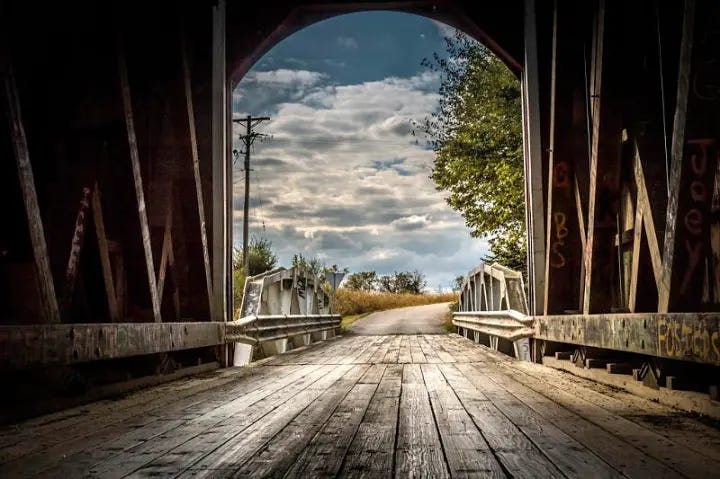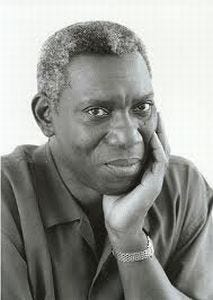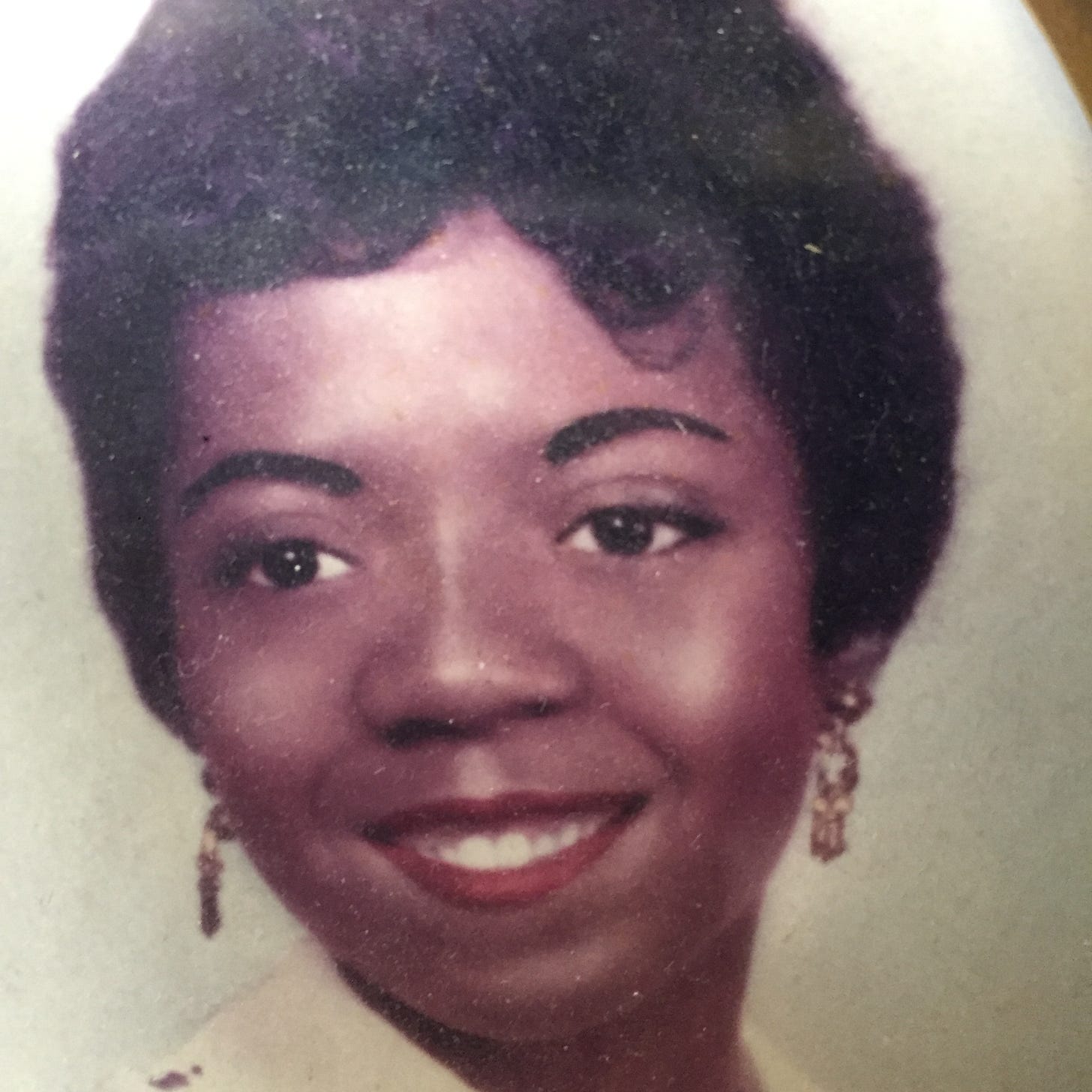ANEW: In the Land of Memory

With this post, I’m doing something that I have not done before: dictate my blog as I traverse the state of Illinois, trying to pick up I-70 again. The poets call it orality instead of writing, but the best stories in the days of yore were recited and handed down rather than inscribed. Here is one of those stories.
I got turned around and was a little disoriented traveling from St. Louis to Cincinnati. Perhaps one could say that I was delightfully lost in Middle America. I mistakenly headed up I-55 going to Chicago as opposed to making the turn-off to I-70 / I-57 right after East St. Louis, IL. I must admit, it wasn’t a waste of time, being lost. Perhaps it never is. As I looked down after about thirty minutes into the drive past the Y-exchange, I saw my navigation app silently telling me, maybe even yelling at me in a faux-Australian accent, to “turn around, turn around, turn around…,” but the app’s English-y dialect auto-generated voice was muted. So I didn’t hear it. When I finally looked down, it was ushering me off the Interstate and through small town Southern Illinois that I never knew existed.
After exiting the highway for a time, I passed the town of Alhambra, where a guy on a riding lawn mower was doing donuts in the street and onto his lawn, which was a 40-mile-an-hour zone. I slowed so as not to hit him and stared, but he paid me no mind and kept circling. Later, the app steered me back towards the town of Pocahontas, IL, which is where I picked up I-70 again. Heading towards Effingham and the big cross. If you’ve ever been along that stretch of highway, you know that Effingham, IL, comes up fast along I-70 and is distinguished because it has one of the largest crosses in all of America.
All of this gets me thinking about our mother. Who I visited just a few days before the drive and is also locked in her own memory in her mind. She repeats stuff lots of times, goes down side streets, has to back up, and then repeats herself again. Her Alzheimer’s condition has been worsening since the last time I saw her in late April. I must admit, it is brutally hard to visit a woman who was always so sharp of mind and memory. She had an intellect to be reckoned with, and you couldn’t sneak anything by her. She was double-promoted in grade school, which had her graduating high school at 15 1/2. To be a black woman in the 1950s and to be formidably bright sometimes meant you persevered and became a PhD in some practical field in something or other, or sometimes you became a brilliant mom and raised two accomplished men as sons. My mom completed the latter half of that equation.
For those of you who have parents or grandparents or people that you know who struggle with dementia, you know that you have lost the person who once was so powerful in other respects. Perhaps there is a softening or hardening of the personality, but there is a loss. In the beginning, again, it makes me think that perhaps now I will have more time to visit before she continues to fade. However, I am so grateful that I’ve had the opportunity to understand who I am in relation to her. My brother and I have a job to do now. It is to make sure that in these closing pages of her life, we provide her with the kind of life that she launched us with. Paying it backward, as it were. This is hard, as you know, because sometimes, with the awareness of a great long-term memory, those who remember less and less don’t see the dissolution that is happening before their eyes.
My mother was a storyteller. One of the stories she would often tell was about driving a friend who was pregnant and going into labor to the hospital. The friend had two children. My mother had two children, my brother and a not quite yet toddler me. Four kids crammed into the back of a Rambler. Of course, there were no seatbelts to strap us all in then. That meant that you could go airborne when you crested a hill, gravity lifted you up, and your tummy lept a little, too. We were rattling in the back seat like so many pennies in a coffee can. I remember none of this, but was right there back in the days when Marge (that’s what I took to calling my mother somewhere in 7th grade) told stories. Marge was never a good driver. Suffice it to say, on the way to the hospital, we got into an accident, or so the story goes. The breakaway glass shattered into a gazillion tiny square-shaped pieces. And we were all thrown about, more like dice in a game of dominoes rather than like those wheat pennies in a can. The scars took a while to heal from those nuggets of breakaway glass. Split lips, a busted chin, bumped and bruised knees, but the baby waited, according to mom. I think the Robbins, Illinois Police escorted us the rest of the way. I am certain that the baby grew up, as we all did, to do something in the world or to stay local and try to contribute in other ways. No one is ever lost.
Those stories are incomplete. Did they really happen? I asked Mom later, and she said, “I don’t remember that at all.” She is emphatic this time, not trying to cover. But it was one of those stories I heard over and over again growing up. Or did I? That is the way of memory, especially as it begins to fade to black. This is the woman who raised us, my brother and me. Her intellect was unmatched and ready for just about anything that life through at her, which shaped the way we two looked at the world, my brother and me. It still does.
As these lessons resurface as stories, I do hope that I’ll be able to turn them around in my mind like finely polished sea glass and look at them for what they are. It’s the beauty of what life gives you, and what life takes away.
Curated listening:
Take a gander at another person of my mother’s generation talking about his memory, which is clouded over and mitigated by trauma, too. Listen to Yusef Komunyakaa read “Facing It” HERE





